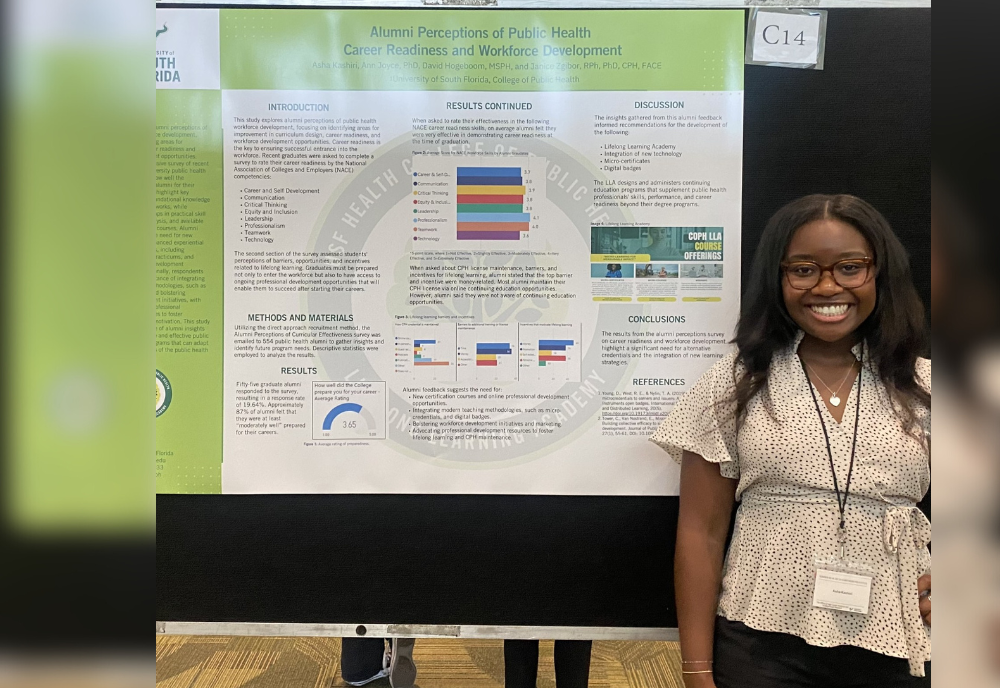Kiara Perez-Cans wants to be an oncologist. As a 19-year-old USF junior majoring in health sciences, she knows the time, effort, and cost in getting there will be daunting.
That’s why recent financial support through the College of Public Health (COPH) is so critical to her young career and encourages her to be her best. Perez-Cans is one of 10 students at the college who received funds through the Florida High Tech Corridor/ Undergraduate Research Initiative, which helps support students earning a degree.
For Perez-Cans − who’s in the undergraduate class of 2026 − the award helps keep her focused on a pre-med track.
“I’ve been able to better my research skills through this opportunity,’’ she said. “I’m confident these skills will greatly benefit my career goal of becoming a doctor, particularly if I decide to pursue research.’’
The initiative allows students to work with faculty mentors. Some are interested in research, but lack either a mentor or the time to volunteer in the lab. Many take classes full-time and work part-time jobs, so the funding supports their professional and academic goals and allows them to better manage day-to-day expenses.
The program provides up to $10,000 to each of USF’s nine colleges and as part of that, funds this year were awarded to 10 undergraduate students to work with COPH faculty.
“While many students volunteer,’’ Perez-Cans added, “being chosen as a paid employee has motivated me.’’
Last year through the initiative, COPH sponsored three students in one intensive lab. This year, the 10 students are working alongside nine different faculty mentors in different labs.
In the long-term, the initiative benefits not just students, but the communities where they will work as professionals, said Alison Oberne, PhD, interim assistant dean of undergraduate studies at COPH. This idea of “paying it forward’’ is part of the Corridor’s mission.
“I believe this program benefits society in a few ways,’’ Oberne said. “First, students are participating in faculty-mentored research. These research projects support different communities, both within and outside of USF, and the outcomes of these studies have a lasting impact.
“Additionally, participation in this program provides students with increased knowledge and skills that they can apply in their future careers, and they may give back and support students or mentees in their careers − fostering a cycle of mentorship.’’
Being chosen for the Corridor initiative was both a surprise and an inspiration, said Allha Akrami, a 21-year-old public health major.
“My experience was nothing short of amazing,’’ Akrami said. “I learned so much about conducting research and reporting, and I even got to present at the undergraduate research symposium. I felt so much support from my team from the moment I stepped into the office for my interview. This position has inspired me to be involved in research throughout my career.’’
Based in Orlando, the non-profit Florida High Tech Corridor is a regional economic development initiative that covers a 23-county area, anchored by USF, the University of Central Florida, and the University of Florida. Powered by this collaboration, the organization aligns opportunities and resources in academia, industry, and economic development to tap into the region’s potential.
According to its annual report, Corridor provides a cost-effective way for industry partners to access the expertise of renowned researchers, build relationships with students who may someday become employees, and conduct solution-driven research and development with the opportunity to solve society’s most difficult challenges.
